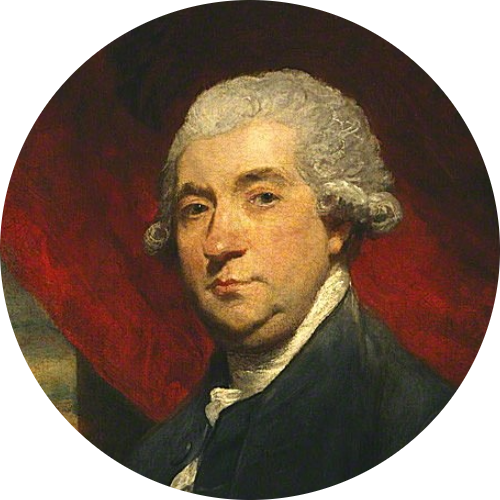Was Boswell really anything more than a fool who clung to Dr. Johnson at all times, as Macaulay suggested?
Yes!
Boswell's reputation was for a long time much influenced by some degrading comments made by Lord Thomas Macaulay in his very critical 1831 review of Croker's edition of Boswell's Life of Johnson. Among other things, Macaulay wrote that "Of the talents which ordinarily raise men to eminence as writers, Boswell had absolutely none", "Many of the greatest men that ever lived have written biography. Boswell was one of the smallest men that ever lived, and he has beaten them all. He was, if we are to give any credit to his own account or to the united testimony of all who knew him, a man of the meanest and feeblest intellect." and "and impertinent, shallow and pedantic, a bigot and a sot, bloated with family pride, and eternally blustering about the dignity of a born gentleman".
Boswell was undoubtedly neither the most consistent, moral or otherwise distinguished character of his time. However, to refer to him as a mean, shallow man of a feeble intellect, is clearly wrong - indeed, very far from the truth - which we can today read in the massive collection of Boswell's personal papers which has been discovered throughout the first half of the 20th century. Click here for an article about Lord Macaulay's habit of exagerating facts.
Let us examine the case more closely: Boswell was the friend of some of the most famous persons of the 18th century. At some time during his adult life, he was the friend of philosophers David Hume, Rosseau and Voltaire, painter Joshua Reynolds, actors David Garrick and Thomas Sheridan, banker William Forbes, politicians Edmund Burke and John Wilkes, Corsican revolutionary hero Pasquale Paoli, the philosopher/judge Lord Kames, and numerous other of the greatest personalities of his time (as is clear from this list), not to mention Dr. Johnson himself, of course. These men would never admit a fool answering to Macauley's description of Boswell into their midst.
That he didn't have any literary qualities is also wrong. His journal, covering most of his life from his 20th year until his death, is the work of a most active journalist, although perhaps not the most original of journalists. He wrote the much respected An Account of Corsica 16 years before his first book about his life with Dr. Johnson appeared, and at the time of his death, he was still known as Corsica Boswell as much as he was known as Johnson's biographer. Corsica was translated into German, French and Dutch within a few years of its first publication.
A final matter is the question of Boswell being Dr Johnson's "lap-dog" or someone clinging to the "Doctor" at all times. Well, let's do the math. They first met in May 1763. They didn't meet at all during Boswell's Grand Tour from August 1763 to March 1766 and corresponded only a few times. For the greater part of the remaining 18 years of Johnson's life, Boswell stayed in Edinburgh, working as an advocate, while Dr Johnson almost invariably stayed in London, Oxford or Lichfield. Only in the fall of 1773 did the two friends spend a longer period of time together, when they made their journey through Scotland and the Western Islands. Someone has made the calculation, that during the entire 21 years of their friendship, they only stayed within reach of each other for less than 1000 days or just under three years and they met, perhaps, just about 20% of that time - their journey through Scotland included. Even during Boswell's stays in London, they rarely met more than a few times a week. So, again: No - Boswell wasn't just Johnson's lap dog or anything of the sort.
Allow me to end this article with a quote from C. E. Vulliamy's 1932 biography of Boswell - Vulliamy himself was very critical of Boswell and condemned the smallest of his weaknesses, but still wrote the following:
"A very little reflection is enough to shatter the extremely crude hypothesis of Macaulay. Johnson talked freely and well to this young man, not only because he liked him, but because the young man had the liveliest appreciation of conversational episode and the happiest way of playing suggestively or provokingly with a new theme. These are not the gifts of a great man or a an eloquent man, but they are not those of a fool. To suppose that we owe the most astonishing literary portrait in the world to the random jottings of an irresponsible ass is clearly absurd." (Vulliamy's James Boswell, p. 22-23)
